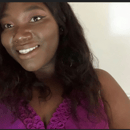Legally Blonde is a movie that focuses on Elle Woods’(Reese Witherspoon) journey from UCLA to Harvard University in an effort to win back her college boyfriend. Through this adventure, Elle realizes her true potential and helps those around her along the way. The concept for the movie came from a book written and published in June of 2001 by Amanda Brown; the film adaptation came out shortly the following month, and later a Broadway Musical. After its release, the film received backlash for centering its themes around sexist stereotypes. However, I believe that the film actively disproves said stereotypes, thus making it progressive for its time. Here is a list of four reasons why Legally Blonde is a feminist movie.
(Photo by IMDB Photo Gallery)
1. Her Intelligence
In an article written by Peggy Sue Wood, Wood highlights the differences between the film, musical and book, stating that Elle Woods has always been “smart enough to achieve just about any task.” Movie scenes in which Elle struggles to study were hard to watch for Wood because in the book she receives a score of 179, a point off from a perfect score, putting Elle at the top 0.1 percent of those that take the exam. Audiences couldn’t believe the writers would stray from this fact in such an intense manner. Seeing the writers “dumb-down” Elle adds an interesting element to the story. Elle’s high intelligence would have made her acceptance much less impactful. Moreover, her relentless efforts to study and master a foreign subject proves how dedicated she is to achieving things that matter to her. Although her intentions center around a guy, her priorities change for the better.
(Photo by IMDB Photo Gallery)
2. Ending Girl on Girl Hate
Throughout the film Elle strives to be kind to everyone around her regardless of their background. A prime example is how she interacts with her classmate Vivian Kensington, her ex-boyfriend’s new fiance. Eventhough Vivian is extremely vicious towards Elle because she’s the “enemy,” Elle doesn’t let her past interfere with how she thinks of Vivian. In our society today, we can see that women have been pushed to fight against one another in an effort to succeed. However, Elle strives to empower her female counterparts rather than push them down. When asked by her new friend, Paulette, how Vivian looks Elle doesn’t take this as an opportunity to attack Vivian. Instead, she gives a fair assessment stating “she could use some mascara and some serious highlights, but she’s not completely unfortunate looking.” The comment is slightly superficial, but she’s not being a bully. In the musical, her sorority sisters encourage her to physically fight Vivian but Elle refuses as “violence is never the answer” and even deems that Vivian’s style is what attracts Warner to her, taking it as an inspiration to change her look. In the end, Elle and Vivian become best friends and it’s all thanks to Elle’s efforts to treat Vivian kindly and fairly, especially in their male-dominated field.
(Photo by IMDB Photo Gallery)
3. Dealing With Harassment In The Workplace
After proving herself in the classroom, Elle is offered a prestigious internship with one of her professors. Elle climbs the ranks within her internship through her hard work and eventually solves the case on her own! However, along the way the same professor who gave her this opportunity tries to take advantage of her and pressure her to sleep with him in order to get a better position at his law firm. Elle is absolutely disgusted with his actions and decides that she cannot work for a man who exploits women. This type of harassment is not uncommon for women. Elle’s decision to firmly decline empowers her and the women watching to fight against sexual harassment in the workplace.
(Photo by IMDB Photo Gallery)
4. Supporting the Underdogs
Elle is extremely inclusive and kind to her classmates, especially Enid and “Dorky” David. When Elle is rejected by a study group put together by Warner, Enid makes fun of Elle’s privileged, Valley background. Elle responds quickly, saying “if you had come to a rush party, I would have at least been nice to you.” Afterwards, Enid claims Elle would vote against her and call her a dyke behind her back, but Elle states she refuses to use that word. Her interaction with Enid demonstrates that Elle doesn’t think less of Enid because she is not hyper feminine and doesn’t make assumptions of her sexuality based on just that.
Later in the film, “Dorky” David is seen unsuccessfully trying to ask out a girl on a date and Elle goes out of her way to amp up his reputation and helps him land a date. She has personally experienced bias based on her looks rather than her personality and can’t stand to see a genuinely kind person like David to be mistreated based on nothing other than looks.
(Photo by Chelsi Peter from Pexels)
It might seem backward to some to see Elle Woods embrace her feminine style and blonde hair all while actively participating in feminist issues, but this is what makes her character so important. Elle proves that no matter how you carry yourself, your background, or how your priorities align, you can do anything you set your mind to and facilitate change.



